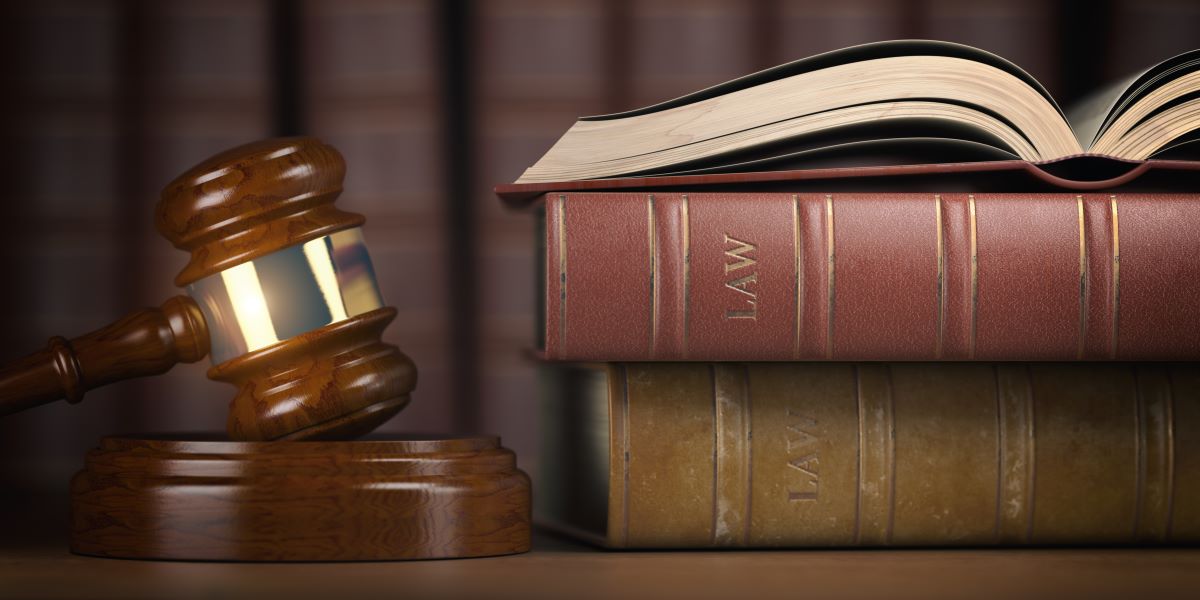Precedent is a legal term that is often heard in court cases. Precedent is an important part of the law because it ensures that the law is fair and consistent.
So, what does precedent mean in simple terms? In simple terms, precedent refers to a ruling or decision made by a court in an earlier case that can be used as an authority in deciding subsequent cases involving similar facts or issues.
Precedent is important because it ensures that the law is consistent and fair for everyone involved.
Let’s take a closer look at this important legal concept.

What Does Precedent Mean?
Precedent is a legal term that refers to a ruling or decision made by a court in an earlier case that can be used as an authority in deciding subsequent cases involving similar facts or issues.
Precedent is important because it ensures that the law is consistent and fair for everyone involved. When a court makes a decision, it sets a precedent for future cases of its kind.
This means that any other court hearing in a similar case will follow the same decision made by the court in the previous case unless there are some new facts or issues brought up during trial which might change things.
The precedents set by courts can be used as guidelines when deciding on future legal cases involving similar scenarios, so they serve an important function within our system of justice and fairness!
How Is Precedent Used?
Precedent is often heard in legal cases because it refers to a ruling or decision made by one court that has been used as an example in subsequent decisions on cases with similar circumstances.
Precedents may also apply across different jurisdictions, meaning that it applies across states or countries. Precedents are an important part of the law because they ensure that the system is consistent and fair for everyone involved.
For example, if a judge rules against someone in one state then another judge should also rule against them when faced with similar circumstances regardless of where those cases take place or whether there have been any changes since then.
““Precedent” means “something which came before,” so precedent refers to things that happened previously; this phrase describes past events as being used as examples to guide future actions within our legal systems!
When courts make decisions based on precedents created by other courts, they’re following what came before them. This might not always be helpful but usually will lead toward justice being served fairly.
A precedent is a powerful tool in the court system, and it’s fascinating to explore how this legal term impacts our lives daily.
Precedent Examples: How Precedent is Used in the Court System
Now that we have a better understanding of what precedent means, let’s take a look at some examples to see how it works in practice.
One common example of precedent can be found in contract law. In particular, when one party breaches a contract, the other party may be able to sue for damages based on the precedent set by previous court cases.
For example, if Party A breaches a contract with Party B, and Party B has previously won a case against another party who breached a contract in similar circumstances, then Party B may be able to use this ruling as evidence that they have a good chance of winning their case against Party A.
Another example can be seen in torts law, where the principle of negligence is based on precedent. This means that if someone is injured because of another person’s negligence, they may be able to sue for damages by relying on past court rulings in similar cases.
Precedent is also an important factor in criminal law proceedings. For instance, a defendant might argue that their actions should not be considered a crime because there is no previous case with similar facts, and therefore the court should not set a precedent that would punish them for those actions.
As you can see, precedent plays an important role in many different areas of law! It ensures that courts are making decisions based on what has come before and helps to create a system that is fair for everyone involved.

History of Precedent in Legal Terms
Precedent has been a part of the law for centuries, and its use can be traced back to Roman times.
In those days, if two citizens disagreed, they could take their case before the local magistrate who would make a ruling. If either party was unhappy with the magistrate’s decision, they could appeal to a higher authority.
However, there was no system in place to ensure that the higher authority followed the same rules as the lower one – so each appealed court could come to their ruling!
This led to inconsistency in the law and often unfair decisions. It wasn’t until 1866 that precedent was introduced into English law as a way of ensuring consistency and fairness in legal rulings.
In America, the use of precedent can be traced back to the early 1800s. Precedent is an important part of our legal system and helps to ensure that everyone involved is treated fairly under the law. It’s fascinating to explore how this legal term impacts our lives daily!
Precedent in a Legal Context
Precedent is an important concept in the world of law, specifically regarding case law.
Case law refers to decisions made by courts in cases that have come before – these decisions create binding precedents for future cases involving similar facts or issues.
When a court hands down a decision, it sets a binding precedent for all lower courts hearing similar cases within its jurisdiction unless some new facts or issues weren’t taken into consideration during the previous trial.
In this way, precedent serves as a guide for judges when making decisions in similar cases – it ensures that the system is fair and consistent for everyone involved.
Precedent can also be persuasive authority, meaning that other courts may look to a higher court’s decision when ruling on a case with similar circumstances.
However, precedents are not always followed and can be overturned if there are new facts or issues brought up during trial which weren’t considered previously.
What You Should Know About Overturned Precedents
An overturned precedent is a decision made by a higher court that is no longer binding on lower courts.
This can happen when some new facts or issues were not taken into consideration during the initial trial, or when the court decides to overturn the previous ruling based on a change in legal thinking or interpretation.
When this happens, it can cause chaos and inconsistency in the law as different courts apply different rulings to similar cases. This is why judges need to consider all of the relevant facts and issues before making a decision – so that they don’t have to rely on precedent to make their ruling.
Precedent is an important part of our legal system, but it’s not always followed and can be overturned if there are new facts or issues brought up during the trial. It’s fascinating to explore how this legal term impacts our lives daily!
Alternatives to Precedent
One alternative to precedent is stared decisis, or “stand by the decision.” This means that a judge will make their decision based on what has already been decided in similar cases.
This can be helpful because it ensures consistency and fairness throughout the legal system. However, if there aren’t enough precedents available for this purpose then judges may not have sufficient guidance when making decisions about new situations.
Another alternative is using legislative action instead of precedent-based rulings from courts. This allows lawmakers to enact laws without having them reviewed by another branch of government first before becoming law (such as with judicial review).

In Conclusion
Precedent can be a powerful tool in the court system. However, it’s not always followed and can be overturned if some new facts or issues were brought up during a trial.
Especially in criminal law cases involving serious crimes such as murder or rape. These types of trials tend to be more likely overturned. This is because there are so many different factors involved in determining guilt or innocence.
Precedent, a common legal term, has a great impact on our daily lives and society as a whole. It’s fascinating to explore more of how this works!
Related Questions
How do judges decide cases? Judges will often use precedent when deciding a case. They’ll consider previous decisions made by other courts, as well as their own experiences and beliefs.
In the end, though it comes down to what they think is best for everyone involved (including society in general).
What is a case citation?
A case citation is a legal reference for a particular decision handed down by a court in an earlier proceeding. This may include citations from other sources such as statutes or regulations that were relevant at the time of ruling on this issue.
- This helps make sure everyone knows what has already been decided before moving forward with new arguments about it.
What types of cases can be appealed?
There are many different kinds, but most commonly criminal convictions (like murder) and civil lawsuits (such as personal injury claims). To appeal successfully though there must still be evidence left behind which suggests guilt beyond a reasonable doubt if not enough proof was found during trial proceedings to support your argument as being there was not enough evidence to convict.








